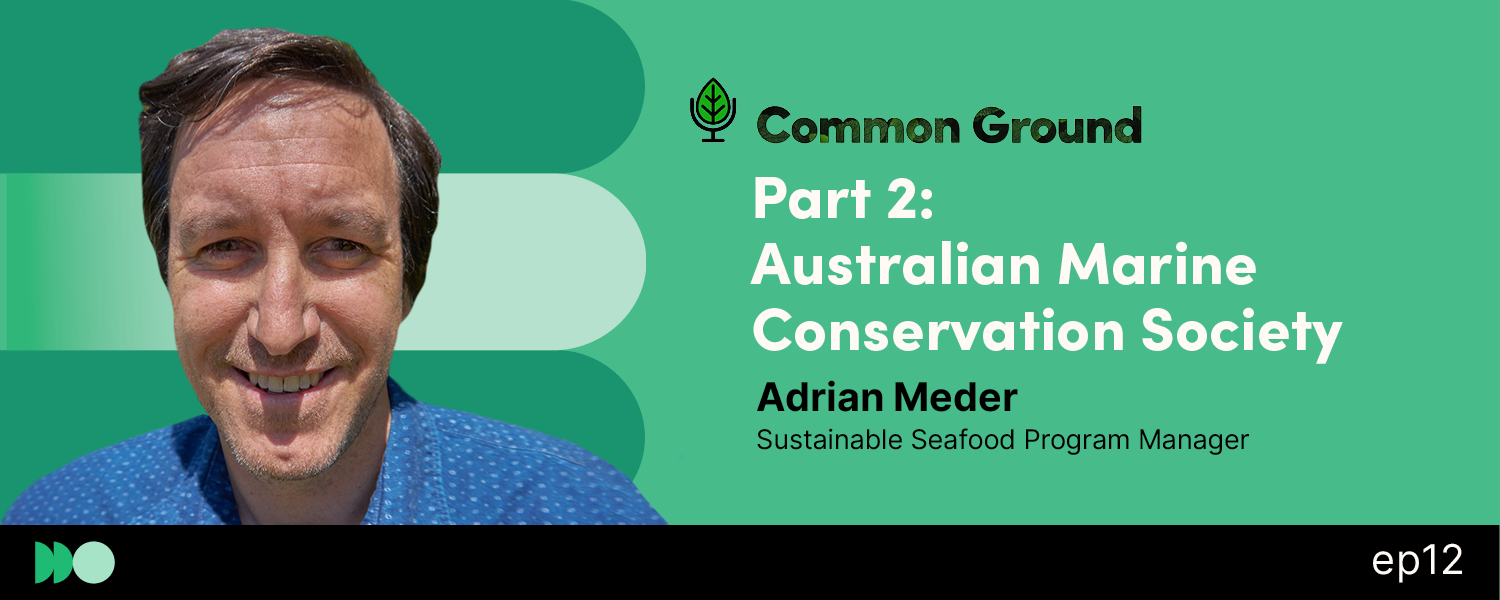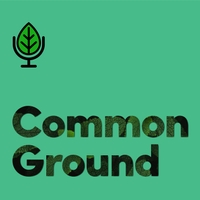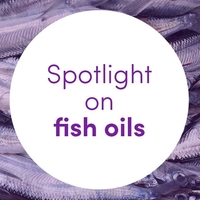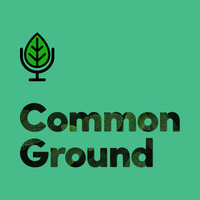
Listen on Amazon music | Apple Podcasts | Google Podcast | Spotify
Transcript
Jacqui Fahey (0:03):
Welcome to Common Ground, a podcast series discussing new research and interesting projects in the field of complementary medicine. Hello, my name is Jacqui Fahey, Head of Education at vital.ly
vital.ly is a digital platform, a professional health resource, and a distribution service all in one.
Firstly, I'd like to begin by acknowledging the Gadigal people of the Eora nation as the traditional custodians on the land on which we gather here. I would also like to pay my respect to their elders both past and present.
Last episode, I spoke with Adrian Meder, Sustainable Seafood Program Manager from the Australian Marine Conservation Society (AMCS) we covered fish farming, fish oil certifications and how we may make informed decisions about the fish we choose to eat, how this helps our oceans, covering some of the tools that may help us with such decisions, such as the sustainable seafood program guide from AMCS.
In this second part of the interview with Adrian, we delve further into ocean acidification, krill oils, what ‘wild caught’ fish is, then onto microplastics, heavy metals and cleaning up the ocean.........with Adrian sharing some final rays of light on the horizon for us all.
Here we go.....
Jacqui Fahey (1:30):
I was reading with climate change and ocean acidification that krill oil stocks have actually been slashed by, according to Sea Shepherd, by up to 80%, since the 1970s. I wanted to ask you Adrian, what's the story with krill oil. Is it sustainable? Is it impacting our Antarctic ecosystem such as whales, penguins, birds, and fish?
Adrian Meder (1:54):
Yeah. So the challenge of ocean acidification is that, so as we produce carbon dioxide the oceans are our major sink and storage for that on our planet. And as that carbon dioxide goes in, it increases the acidity of the ocean and that makes it harder for the many, the multitudes of different kinds of marine creatures which form shells, because that acidification makes it harder for those shells to form. So it makes it harder for corals to grow their calcium based structure and for krill, they’re a shellfish and it makes it makes it harder for them to grow and develop the shells they need, and that's having a big impact. So that's where the nub of the issue for ocean acidification comes from there and also warming water. Now warm water is less productive than cold water because it actually carries less oxygen.
And so that's an issue as well. But as far as Antarctic krill goes, the good news about the way our Antarctic fishery resources are managed, is that they'd done so under a very strong international treaty and that international treaty says, okay, you can fish krill but the first thing we are managing this ocean for is not how many krill you can get and profit which is how so many fisheries are managed. The first thing we're managing is for is the wellbeing of all the organisms that depend on that krill. And 50% of the krill that's produced actually goes straight into the bellies of whales and penguins and so on. So that's vitally important. And so for that reason, we only see the effort to manage our krill oil resources and the Antarctic at least, is to only take maybe 3% of the amount of krill that would be there if we didn't have fishing.
Adrian Meder (4:07):
So, yes. Is it sustainable? There's some real challenges and there are oceans warming fast, and there's a lot of interest from companies to exploit this krill resource and there's political pressures challenging the way we manage our Antarctic. So we need to be very very careful and keep a close watch and eye on things. But as of right now, I would say that the approach, which is very science-based and puts the environment absolutely front and centre before letting the fishing fleet in, then that's about as good as you could hope for in any fishery management systems. So good news at present but we have strong concerns and actually part of the work AMCS is doing and Australia is leading, is to actually secure that whole Antarctic ecosystem with some very large Marine protected areas where no fishing at all be allowed and absolute protection for wildlife. That's a huge international political challenge, but that's one, that's also very very important.
Jacqui Fahey (5:19):
Thank you for clarifying that. So should we be eating less fish or asking for particular alternatives? For example, flake is often the number one choice or option given at fish and chip shops. Should we be asking for alternatives like flathead or silver perch or in general, like the red meat campaign, should we be eating less fish overall?
Adrian Meder (5:42):
That's a great question. Look, one of the ways undoubtedly you can reduce your impact on our oceans and your food choices is to eat less fish. On the other hand, fish is a very healthy source of protein and in some cases, a very efficient and climate friendly way to source it. If you're going to, if you're going to eat it relative to a lot of land base animal production, certainly. So that brings us down to the next level, which is about the choices we can make. And as you say, so flake in Australia is actually shark meat, and it's supposed to be, come from really two species, but it doesn't. And the major fishery for one of those species which in itself is sustainable, also catches about 20% of its overall catch is another species of shark.
So this is a species targeting gummy shark but gummy shark is not as healthy but it also catches a shark called school shark, and this is just a great example and that the school shark is an endangered species and it's recovery from being very close to extinction as being slowed down substantially by the shark fishery that is targeting this other species. And so I think, and we know that a lot of people would be like to think, you know, I don't, I might not mind eating a piece of shark with my fish and chips but I certainly don't want to be eating an endangered species of any sort, you know, you wouldn't count on it's someone mixing and some koala at the butcher for example, it'd be, it'd be abhorrent, wouldn't it? And yet we have endangered sharks species, several of them that are being sold to us under this banner of flake.
So awareness and making that choice. You know, we hope to fix those shark problems and we also have to fix the issues of mislabeling seafood, where it's actually possible to sell an endangered species as a kind of fish which might be sustainable. We need to fix those problems but they're not fixed and they're a long way from being fixed. So in those cases, being able to make the choice and just say, let's try something else because there are much better alternatives. And again, if the consumers are asking for them, eventually the fish and chip shop owner is going to say, okay, I'm going to bring that in and we'll all be better off in the long run.
Jacqui Fahey (8:33):
Yes and we saw this occur with regards to caged chickens, and asking for free range chicken?
Adrian Meder (8:41):
Absolutely, yeah. And changes to the pork farming industry, which are essential, it'd be more humane. Yeah, this all happens and that's by driven by us. That's our power to be able to do so, yes.
Jacqui Fahey (8:58):
I wanted to ask you about wild caught fish. I've heard various definitions. One I've heard is that fish are farmed and then they're taken out for a hundred metre swim. What does wild-caught exactly mean?
Adrian Meder (9:13):
So wild-caught fishery, it's not like, if you imagine farming, where instead of sort of corralling the animals in a paddock, you go out and just find the natural population and harvest some of them. That's essentially hunting and that's what wild fishing is. We do, you know, there are some advantages in that we don't necessarily have to heavily modify the ocean. We don't need to turn native forest into paddocks to, to be able to, to catch and produce the fish, which is in some ways a good thing, but we are out there in the natural environment and we're out there amongst a range of species that are in big trouble and we're fishing over some habitats that might be very sensitive or vulnerable. So, so wild-caught fishing is different to farming in that sense, we still have natural values to respect.
Fish farming on the other hand, there is a sort of hybrid versions of juvenile fish in Australia, it's a Southern bluefin, tuna, juvenile fish are corralled in the wild and then essentially a net is wrapped around them and they are towed off to a site where they're fed and grown up until they reached the ideal market size and then sold on. That's a very inefficient way to do things but typically a farmed fish has its lifecycle as sort of completely closed within the farm. There are fish that are used to breed from, their eggs are collected and raised in a hatchery, usually on land and then when they're large enough, they're often either put out into the ocean in sea cages or farmed in tanks or ponds on land and growing up to market size there. So those are the differences. There's a range of different issues there, I guess, as I described some of them before.
Adrian Meder (11:24):
But yeah, there really are some key differences there and a whole different set of challenges. The way we assess wild versus farmed fish in our guide is under a completely different set of criteria but we aim to have a level, very similar environmental outcome for the bar we assess those things against.
So, you know, we don't necessarily have to look at pollution impacts for a wild fishery because they've very, rarely occur, but that's a really central issue with fish farming in the ocean. We usually don't have a sustainability issue with pulling too many fish out of the ocean for farming fish because we're just taking those fish for feed or not at all. Whereas a real key level is to, in a wild fishery is to ensure that the natural population of those fish is left alone. You know, we, we produce say most of the salmon that we eat nowadays is farmed and we couldn't possibly get that many salmon from the wild fishery, everything would collapse and in fact many salmon fisheries in the wild are in big trouble as a result of our demand. Our demand for salmon has meant we've moved to farming for great majority of the ones that we eat.
Jacqui Fahey (13:07):
You mentioned earlier with regards to heavy metals and microplastics, what technologies are being employed to clean up the ocean?
Adrian Meder (13:17):
Well, you know, so the best thing we can do regards the use of plastic is to stop using it, is to get rid of single use plastics and our organisation is working very hard in that area and having some success in Australia recently which was great. Look at another one, a major contaminant in our seafood is mercury and much of that actually comes from coal. It's there present underground, and it only gets released when we burn it in a coal power station and then that ash and smoke finds its way into the ocean eventually. We've burnt so much of it that that is now the leading source of mercury in our fish. So funnily enough sort of double benefit of addressing climate change and transitioning to renewable energy sources is that we will sooner rather than later, I hope, stop putting this very nasty contaminant into our food sources. So yeh that, that as a, as a major issue and, you know, there is mercury now in all of our fish to a varying extent that comes from us burning coal for electricity and other uses.
Jacqui Fahey (14:44):
And then that's a matter of the questions we ask, where are we sourcing from? Is it the small cold water fish? as well as what standard, for example, the Australian Therapeutics Goods Administration (TGA) has in place for what is allowable for heavy metals.
Adrian Meder (15:02):
Yes, and you know, those standards are very important and you asked about technologies to clean up the ocean in it. I don't, we don't have a lot of solutions, because the ocean is so vast and we've put a lot of pollution into it. The technological solution is to just move away from producing the sources of those contaminants, essentially just stop doing it. And it's not very technological, but it's very effective. But yeah, as you say, there are standards in place, they're very useful. And, you know, in relation to mercury, it is safe to eat some of these fish that are relatively high in mercury, as long as we don't do it very often. And frankly, I'm going to choose to eat them a lot less often than as recommended by those Therapeutic Goods Administration standards. But we are lucky in that we do have those safety guidelines available to us, and we do have a good degree of science available to. Another good reason not to eat flake, is that you might be getting a large, old shark that is chock-full of mercury and you know, these days, many of our largest sharks even if we thought it was a good idea and I don't necessarily, wouldn't be safe to eat simply because of that issue.
Jacqui Fahey (16:35):
We've covered quite a bit today, Adrian. Are there any rays of light on the horizon that you could share with our audience?
Adrian Meder (16:41):
Look, there are, I mean, I I've talked through a bunch of things, but suffice to say here in Australia, a growing consumer awareness is putting a lot of pressure on Australia to improve its game. And in many ways we have, we have a lot of science aimed at the issue. We're starting to take things like climate change seriously, and our management of our oceans. And we're starting to understand that we need to be leaving more efficient than water and make progress towards getting there. We have put Marine protected areas throughout our oceans and, you know, we'll continue to improve them. So we are a leader and, and the, really the, the ray of light is that all of that has happened because of Australians, not just through their support for our organisation, but through their support for, and their demand that their leaders look after our oceans to a better standard than most other places of the world. And if we can excite and engage and get people interested in active and doing that elsewhere in the world, then, then we'll all be in a better place. And yeah, we are seeing real change and I think we have turned a big corner for our oceans, which is good news, but, you know, we're still placing enormous pressure on it as well. Of course the climate crisis is, is as true for our oceans as it is for our environment on land.
Jacqui Fahey (18:22):
What are some key takeaways that you would like our listeners to remember from today?
Adrian Meder (18:26):
That's a great question. And I think one of the most important things is for your listeners to ask that question, so where is this from? Where does the seafood come from? That's a very powerful question to answer and to take a look at a seafood guide, like the one we produce at good fish and just think about their favorite seafood. One useful tool we’ve just added recently is to say, look, if your favourite seafood's on our red list, here's a bunch of alternatives and how to, how to cook them and prepare them. And you might find a new, very sustainable alternative that is delicious. It's cheaper. It's more interesting. And you know, that's a real step forward because there is, there is good seafood out there, and there are good sources of things like fish oils that we can switch to and make a real difference.
Jacqui Fahey (19:33):
Well, thank you so much for your time today, Adrian. Some very inspiring and very guiding tips that you've shared with our audience and we certainly look forward to hearing further projects that the AMCS is doing and we really thank you for the work that the Australian Marine Conservation Society is doing to thank you very much.
Adrian Meder (19:53):
Thank you. It's been wonderful to talk to you today Jacqui
Jacqui Fahey (19:57):
To our listeners, please subscribe to Common Ground. We appreciate your support and feel free to leave us a review. We would absolutely love to hear from you. Thank you.
Resources from Australian Marine Conservation Society (AMCS)
Good fish Sustainable Seafood Guide
Fish farming, sustainability and seafood products.
Produced by vital.ly






